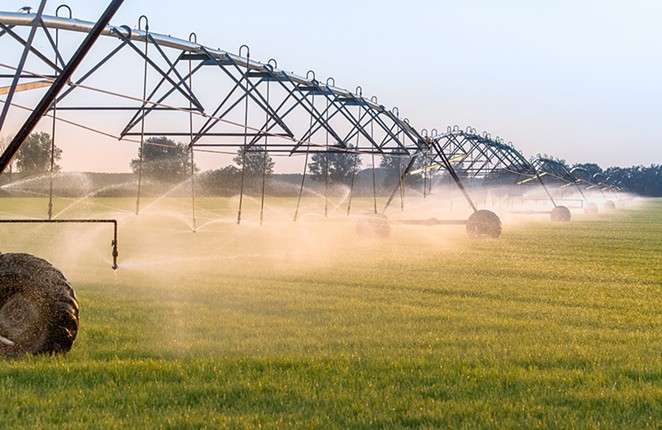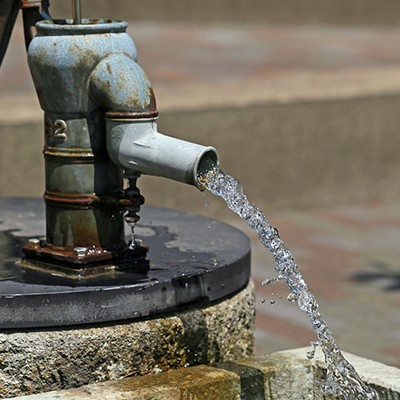There's a reason we devote an issue each year to water. Not only is it the most basic of human needs, but the issues around it only continue to grow. In recent years, the farmers who actually grow crops in the region have suffered from shortages of irrigation water. A longstanding drought — which has only eased in the past year or so — has caused plenty of worry. Cities are aiming to grow, as per the state's housing goals, and yet face the pressure of how to supply enough water for the people who have yet to arrive. Water is finite, and in a region that continues to grow, supplying enough water for farms, fish and humans is a big challenge.
Yet, in the past several years, some changes have been afoot that indicate that perhaps we can change things and alleviate the decades-old problems that have seen the Deschutes River over-allocated, groundwater in peril and farmers without the resources they need.
Some of the bright spots we've seen recently: On the Klamath River, a massive dam removal project that is alleviating decades of toxic water-quality issues in a major watershed, and promising the return of salmon above the four dams being removed. Across the Deschutes River Basin, piping projects aim to deliver water to farms more efficiently. In Bend, there's an effort to help people move away from maintaining green lawns and using low-water-use landscaping instead.
These are things to feel good about — yet each is not quite enough. The majority of water is used for agriculture, not cities — so even the most efficient use of water in a city is something of a drop in the bucket (forgive the pun) compared to the potential on local farms. And even while the City of Bend offers rebates — a program that was spent quickly in 2024 — to reduce the number of thirsty lawns, developers building new housing continue to put in those bright green strips of grass. And with canal piping, the switch from open to closed canals has caused growing pains, including dry wells and the loss of habitats that had been established for over a century in some areas. And with wells, one major problem is that there's currently no real way to monitor how much people are drawing from them.
On the topic of agriculture, the legislature and the Deschutes River Conservancy have been working on some fixes that do aim to reverse course. Here in Deschutes County, many of those holding water rights on their properties have in recent years used their water rights for hobby farms, or worse, even to water sprawling lawns, simply to keep things green and avoid losing the water rights that significantly increase their property values. We can hardly blame a landowner for dumping water on the grass in order not to lose the water right that can fetch them a higher sale price when they sell — but that's a tough row to hoe when it's held up against the lack of water for the career farmers north of Bend.
By allowing those with water rights to "lease" or "bank" their water and not use it or waste it on a lawn, but offer it back to the local rivers, or to farmers, we're getting closer to seeing water used where it's needed, without the economic water-rights decision-making that's been in the way in the past. With the passage of several bills that went into effect late last year, people with water rights can share their water, still get the tax benefits afforded to farmers, and not lose their water rights. We'd love to see Oregon's historical water-rights laws to be more closely examined altogether, and the "use it or lose it" approach be swapped for a more conservationist one. That would be a massive undertaking. In the interim, water leasing and water banking appear to be workable solutions that show promise for expansion.






















